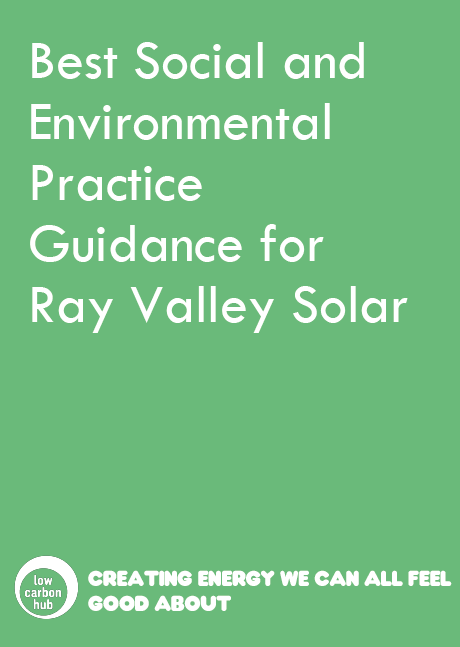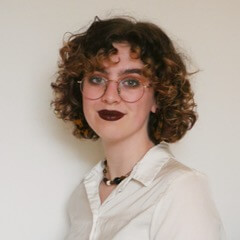An interns experience at the Low carbon hub
Post by Gina Moran, Low Carbon Hub Intern, and author of Best Social and Environmental Practice Guidance for Ray Valley Solar.
Over the summer of 2021, I was lucky enough to spend a week working with the Low Carbon Hub. I was retained as a Sustainable Research Intern in advance of the construction of Ray Valley Solar (the Low Carbon Hub’s first ground mount solar park), in order to research the available guidance on what is the best social and environmental practice for constructing, operating and maintaining a solar park. At the end of my research period, I had to produce a ‘Best Social and Environmental Practice’ guidance document for Low Carbon Hub, offering my recommendations, informed by the research, on how Low Carbon Hub can achieve the greatest standard of environmental and social sustainability at the Ray Valley Solar site.


At the beginning of the project, I created a plan, outlining the research I had to undertake, what this would involve, and how long each aspect of the project would take to complete. In order to research the best social and environmental practice, I read through the available literature from organisations such as the BRE National Solar Centre, The Solar Trade Association, Community Energy England, and many more. I also read several academic papers, which offered more theoretical contributions towards my research.
Literature on the best social practice described the importance of engaging with the community, and how a social enterprise like Low Carbon Hub could best approach this. Some of the examples I thought were the most interesting (and the most fun!) included hosting local fetes and similar events on site, holding art competitions for local kids, and organising eco-weeks for local schools.
I personally found the literature on the best environmental practice the most interesting, as it expanded my knowledge immensely, and I learned about environmental innovations taking place on solar parks around the UK; some examples of environmental best practice included planting wildflower meadows, creating ponds and other waterways for aquatic life, and even allowing local beekeepers to keep bees and hives on the solar farm, maximising the productivity of the site.
This experience was an incredible opportunity for me to build on my professional report writing skills, as well as my visual and written communication skills. The internship was also an opportunity for me to further develop my academic research skills, which I’ve found especially useful in the transition period into my Second Year at university! I adored being a part of such a wonderful team of incredibly talented people who are all so passionate about sustainability and community energy, and relished in the opportunity to gain first-hand experience of working in the industry I will hopefully contribute to in the future. Kat was a brilliant supervisor and I loved getting to work with her on this project.
My favourite aspect of the internship was being given the opportunity to present my research findings and recommendations to the Low Carbon Hub team. At first, I was apprehensive, as I am relatively inexperienced in presenting in a professional capacity, however, after several minutes of presenting I relaxed and thoroughly enjoyed being able to discuss the research I carried out. The experience definitely improved my confidence massively. I cannot recommend the internships available at Low Carbon Hub enough!
